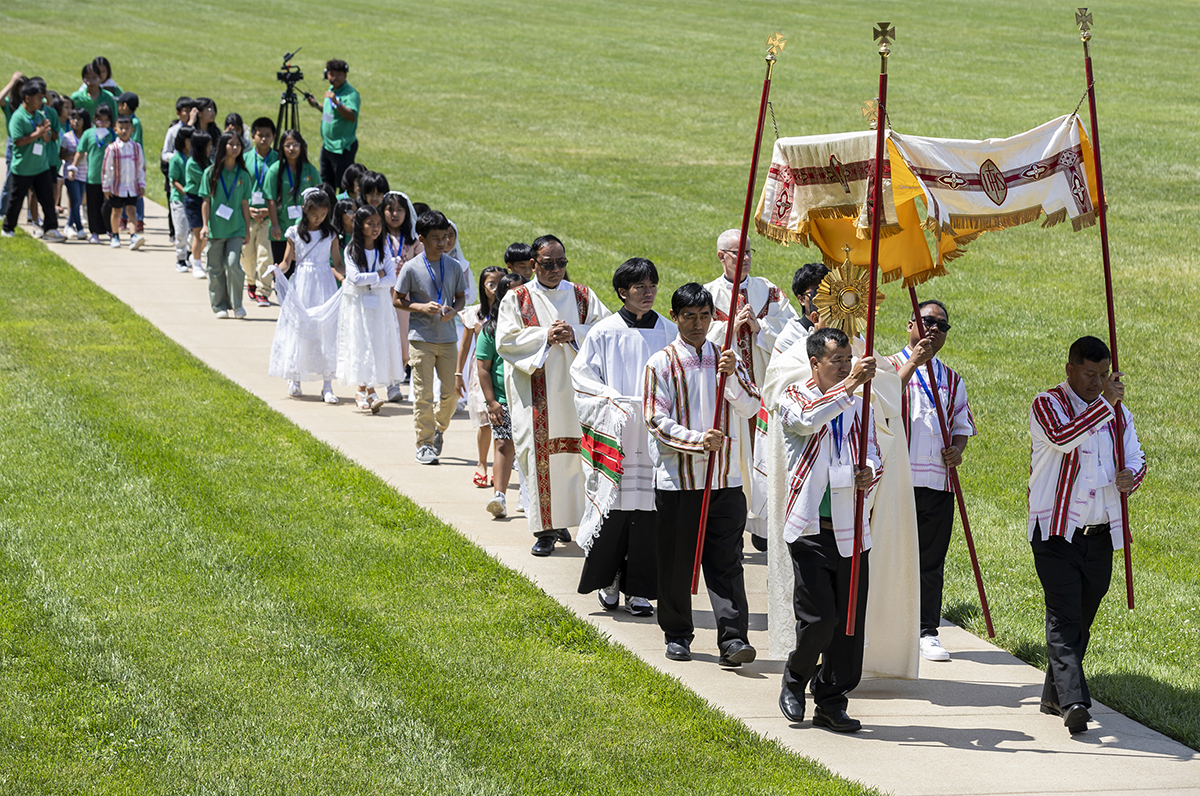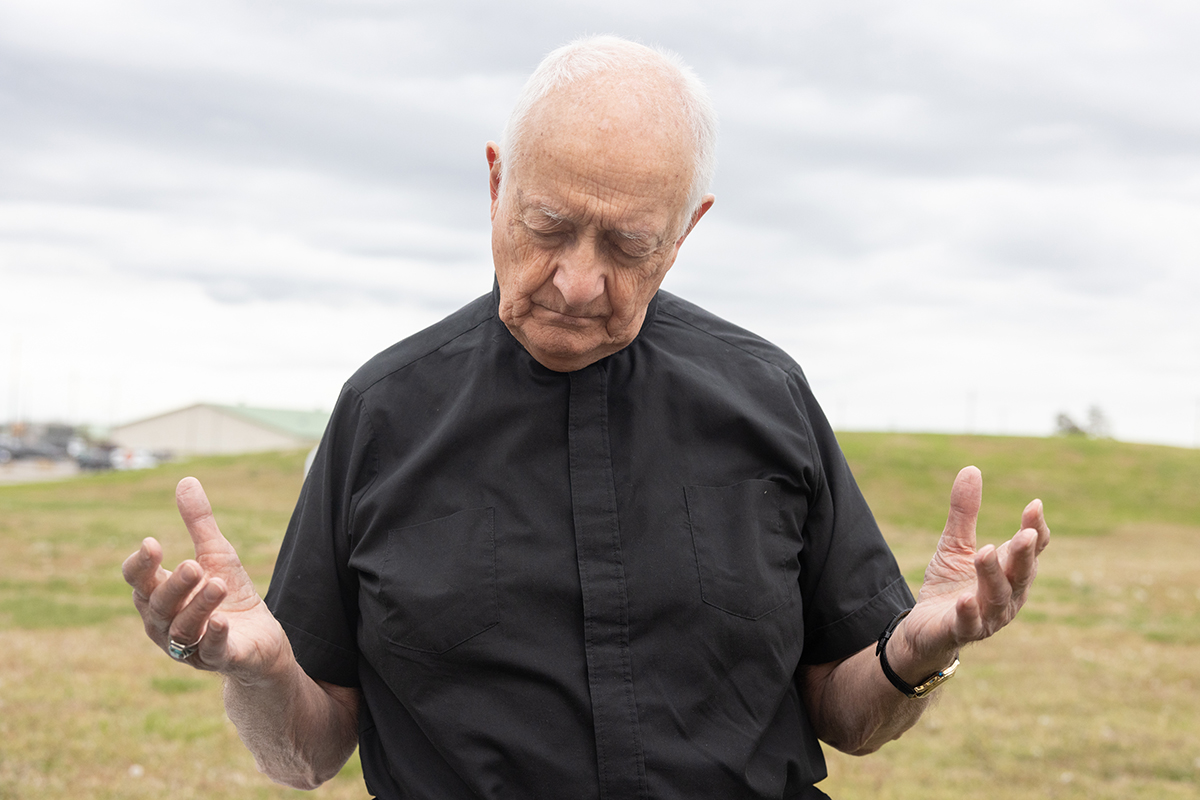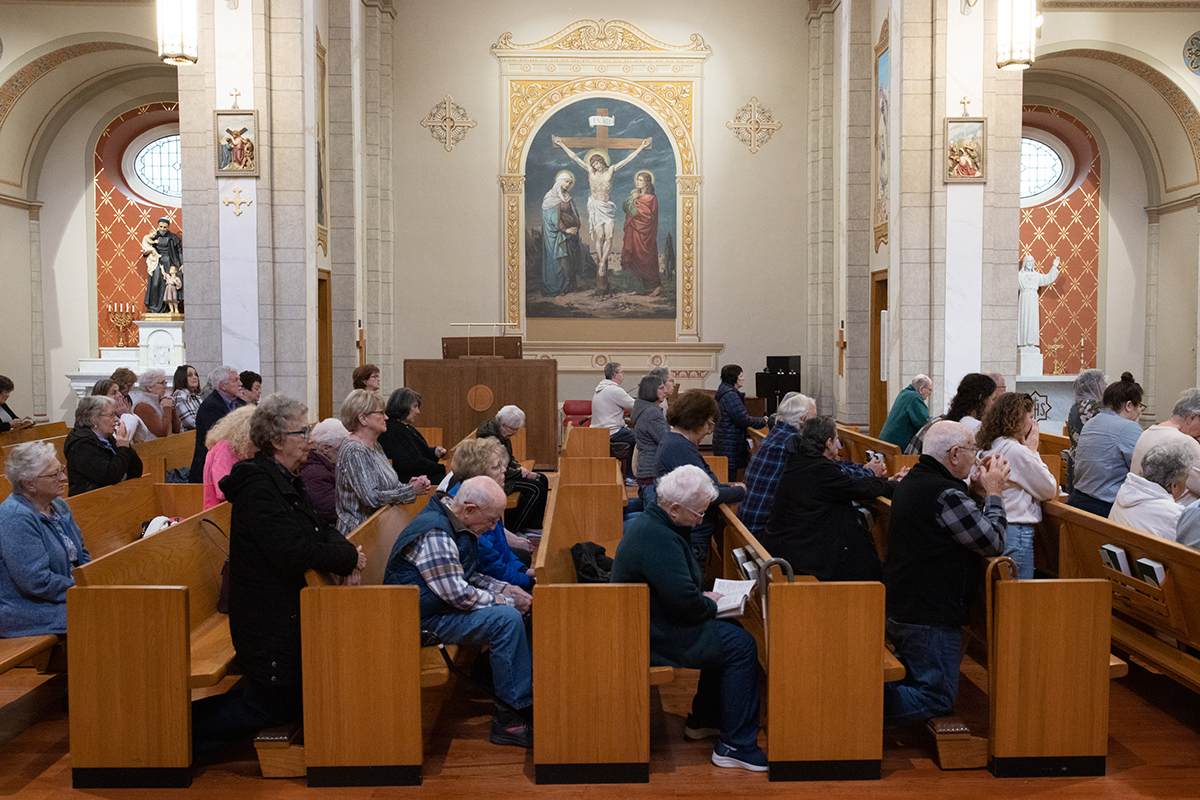Finding hope and healing after suicide
Southern Vicariate panel addresses Church teaching, accompaniment
On a breezy September evening in Ozora, about 30 people gathered at Sacred Heart Parish to tackle a difficult topic: suicide.
The panel discussion with three local experts was part of the Southern Vicariate’s “Hope and Healing” series on the issue, which kicked off with a talk from Father Ron Rolheiser, OMI, in June and will include a Mass of hope and healing in November. The vicariate staff saw a need to address the issue pastorally as part of its focus on mental health, episcopal vicar Father Mike Lydon said.
Missouri suicide deaths are rising, increasing 31% from 2012-22, according to data from Missouri Department of Health and Senior Services. It is highest among white men, and men die by suicide four times as often as women.
Overall, suicide is the 10th leading cause of death in Missouri. It’s the third leading cause of death for Missourians age 10-17 and the second leading cause of death for ages 18-34, according to the Missouri Suicide Prevention Network.
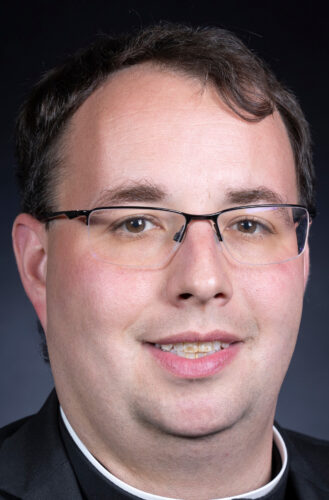
Father Peter Fonseca, director of continuing formation for priests who is also pursuing a doctorate in health care ethics, was there to offer a pastoral perspective, answering two common questions he hears about the issue: 1) Can someone who died by suicide have a Catholic funeral? And 2) Will someone who died by suicide go to hell?
In short, yes, the Church allows funerals for people who die by suicide. And as with any soul, we entrust them to the eternal love and mercy of God.
To more fully understand Church teaching here, it’s helpful to have an understanding of how we judge the morality of an action, Father Fonseca explained. There are three components: the object (or act), the intention and the circumstance.
“This is important for a difficult topic like suicide, because we can say that yes, taking a life is bad. But so often the conversation ends there,” he said. “Here’s the thing: I don’t know the why. Oftentimes I don’t know the circumstances. And if we really want to talk about this action, we need to talk about it in its totality.”
There’s been confusion in the Church at different points in history regarding funerals and suicide, Father Fonseca said, because of what he believes is a “lack of understanding of what our Church actually taught.” There’s always been a caveat that people who die by suicide are not morally responsible for that action unless it was a free, deliberate choice, he said. But before the modern era of psychology and psychiatry, many did not understand how mental illness or other factors can affect that.
The Church plays an important role in walking with those who have lost loved ones to suicide, he said, starting with reminding them that “we don’t suffer alone. We belong to this communion of saints, both those here on earth and those who have gone before us.”
“Christ has overcome death. Death is not the end. Death does not sever the bond we have with those who love us,” he said. “That’s the beauty of baptism: In baptism, we die with Christ, and we rise with Him also.”
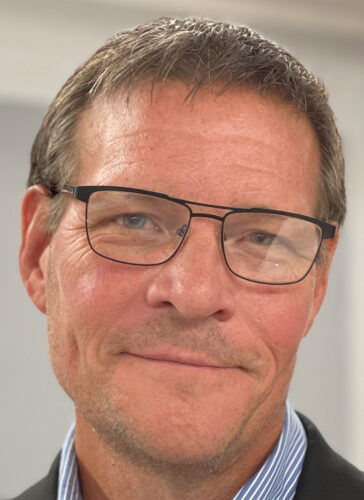
Kyle Dooley knows that suffering too well. Several members of his family, including his father, grandfather and great-grandfather died by suicide, he shared during the panel discussion.
Dooley worked as a police officer for several years before joining the National Alliance on Mental Illness in St. Louis to teach the Crisis Intervention Team program, which trains law enforcement officers how to respond to calls of someone experiencing a mental health crisis.
Dooley advocates for gun safety, specifically gun locks (available for free at the panel discussion) and gun safes, as an important step in preventing suicide.
In 2022, 66% of suicide attempts in Missouri used firearms. The majority of gun violence deaths in the state — 54% — are suicides.
Even just the few extra minutes it takes to open a gun safe or remove a gun lock can be crucial time for someone to change their mind or have an intervention, Dooley said.
“The most important thing we have when someone is in crisis, when someone is suicidal or thoughtful of suicide, the most important thing we have is time,” he said.
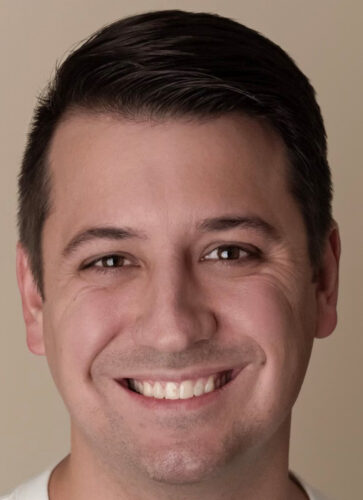
The question people ask after a loved one dies by suicide is often “why,” said Zane Maus, a clinical therapist and director of the school partnership program at Saint Louis Counseling.
“It’s human nature to want to be able to logically explain the circumstances of why the decision ultimately happened, and we’re never going to have an appropriate answer,” he said. “So an important part of the healing process is moving past the ‘why’ and focusing more on the ‘what is,’ and how can you live with what is?”
He encouraged attendees to have open conversations about mental health with their family members and friends. Especially with children, work on using emotion-based language rather than just asking if someone is “OK” or “fine,” he said.
It’s a good idea to ask the hard questions, he added. Know the warning signs of suicide, and pay attention to your loved ones.
“The best ability is availability,” he said. “You don’t have to be an expert to show that you care.”
>> Hope and Healing series
A second expert panel discussion on suicide prevention and accompaniment will be held from 6:30-8 p.m. Thursday, Oct. 17, at St. Paul Parish, 15 Forest Knoll Drive in Fenton. Kyle Dooley, Zane Maus and Father Peter Fonseca will give the same presentation on suicide prevention, lethal means safety, therapeutic accompaniment and Church teaching on suicide.
The Southern Vicariate will host a Mass of hope and healing to remember loved ones lost to suicide at 9 a.m. Saturday, Nov. 16, at Our Lady Church, 1550 St. Mary’s Lane in Festus. A healing program will be available after Mass. You may also submit the name of a loved one for a memorial candle.
To register for the panel discussion or the Mass, visit stlreview.com/405D1JN. For more information, contact Southern Vicariate pastoral ministry coordinator Jennifer Meehan at (314) 363-6945 or jmeehan@archstl.org.
Mental health resources
988 Suicide and Crisis Lifeline: Available 24/7 for free and confidential support. Call or text 988, or visit missouri988.org.
Saint Louis Counseling: (314) 544-3800 or saintlouiscounseling.org
Mental Health First Aid training: mentalhealthfirstaid.org
National Alliance on Mental Illness St. Louis: namistl.org
Southern Vicariate panel addresses Church teaching, accompaniment
Subscribe to Read All St. Louis Review Stories
All readers receive 5 stories to read free per month. After that, readers will need to be logged in.
If you are currently receive the St. Louis Review at your home or office, please send your name and address (and subscriber id if you know it) to subscriptions@stlouisreview.com to get your login information.
If you are not currently a subscriber to the St. Louis Review, please contact subscriptions@stlouisreview.com for information on how to subscribe.


